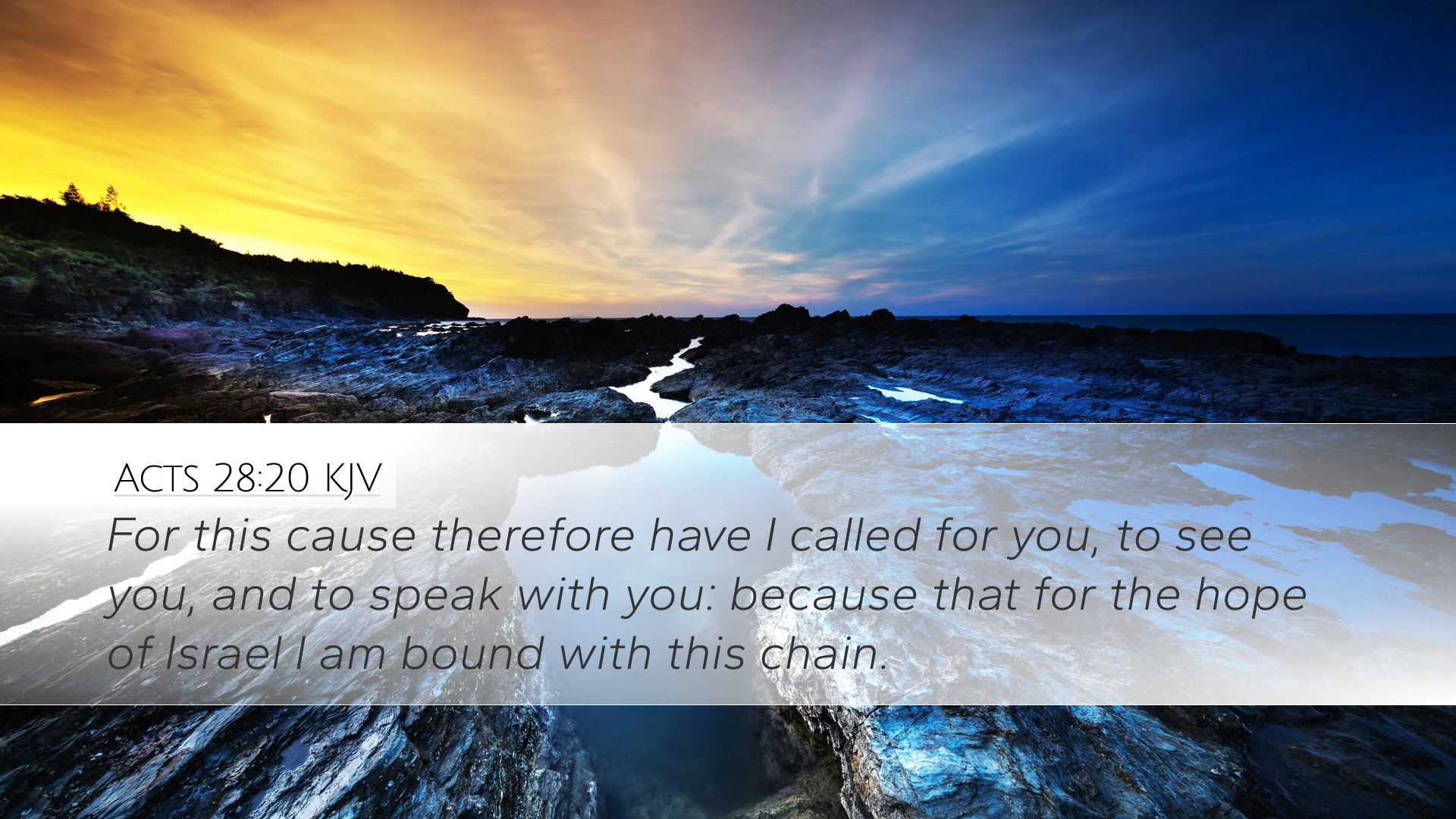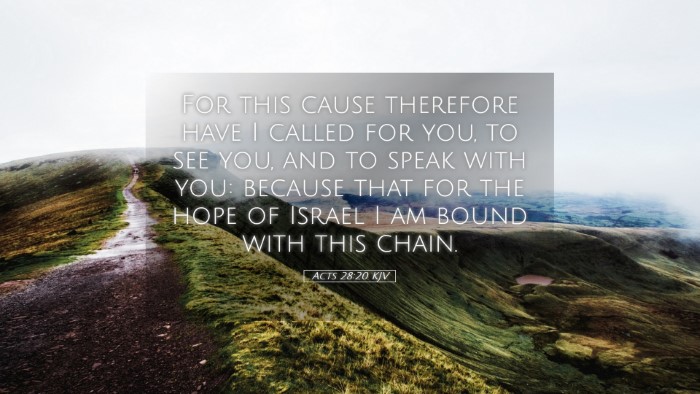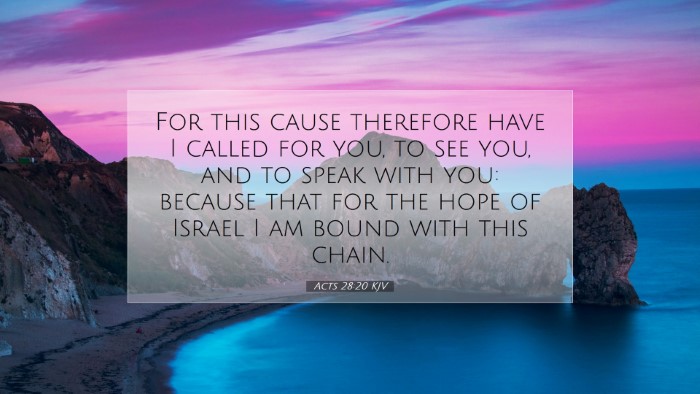Commentary on Acts 28:20
Verse Context: Acts 28:20 states, "For this reason therefore I have asked to see you and speak with you, since it is because of the hope of Israel that I am wearing this chain." This verse encapsulates Paul's situation as a prisoner in Rome, where he expresses his desire to share the message of the Gospel with the Jewish leaders.
Introduction
This poignant verse reveals much about the Apostle Paul's character, mission, and ministry. His personal circumstances are woven into a broader theological framework, marking a turning point in the early church’s relationship with Israel and the Gentiles.
Paul's Imprisonment
Matthew Henry notes that Paul’s chains are not merely physical but illustrative of the burdens borne for the sake of Christ. His imprisonment was for the hope of Israel, which underscores the prophetic fulfillment of God's promises. Paul is chained, yet spiritually free; his willingness to suffer for the Gospel should inspire contemporary believers.
Albert Barnes emphasizes that Paul saw his chains not as a hindrance but as a means of advancing the Gospel. He encourages all to recognize that God can use circumstances, even difficult ones, for His glory. This reflects Paul's unwavering dedication to the work of evangelism regardless of his trials.
The Hope of Israel
The phrase "the hope of Israel" is central to understanding Paul’s message. Adam Clarke elucidates that this hope refers to the awaited Messiah, and Paul identifies himself with this expectation. This hope is foundational in the Jewish faith and signifies the restoration and redemption prophecies found in the Hebrew Scriptures.
Significance of the Hope:
- Jewish Expectation: The hope of Israel encompassed both a political and spiritual expectation for liberation from oppression.
- Christian Fulfillment: Paul conveys that this hope has been realized in Jesus Christ, turning the attention of Jewish leaders toward the fulfillment of scriptural prophecies.
- Bridging the Divide: Paul seeks to bridge the gap between Jewish tradition and the emerging Christian doctrine.
Paul's Approach
Paul's request to meet with the Jewish leaders illustrates his strategy of evangelism. Matthew Henry highlights that he does not shy away from his Jewish ancestry; rather, he uses it to affirm his role in proclaiming Jesus as the Messiah.
This passage reveals that evangelism involves both strategic outreach and deep understanding of the audience's context. Paul did not simply preach; he engaged in dialogue, demonstrating respect for their beliefs while sharing the truth of the Gospel.
Theological Implications
The theological implications of Acts 28:20 are profound. Albert Barnes notes that this moment is pivotal in understanding the transition of the Gospel from the Jews to the Gentiles. The vehement hope tied to Israel's future is now intimately connected to the church's mission.
Key Theological Themes:
- Continuity of God’s Promise: The hope of Israel remains a critical component in God's unfolding plan of salvation.
- The Role of Suffering: Paul’s suffering highlights the call to perseverance in the Christian faith, as trials often serve to testify the authenticity of one’s commitment to Christ.
- Inclusivity of the Gospel: The mention of Israel hints at the broader Gentile mission, conveying that the Gospel contains room for all who believe.
Practical Application
For pastors and theologians, Acts 28:20 serves as a reminder of the church's commitment to evangelism amid challenges. Adam Clarke encourages leaders to steer the conversation towards hope – not just for individuals but for communities seeking redemption and restoration.
Reflections for Ministry:
- Embrace Challenges: Pastors should not shy away from difficult circumstances but view them as opportunities to magnify Christ.
- Dialogue Over Monologue: Engaging with communities requires listening and understanding their hopes while imparting the truth of the Gospel.
- Hope and Restoration: The church must renew its mission, focusing on the hope of Christ that transcends all divisions.
Conclusion
Acts 28:20 encapsulates the heart of the Gospel and reflects the Apostle Paul's relentless pursuit of souls for Christ. His acknowledgment of the "hope of Israel" invites believers to perpetually share the message of hope through Christ. For scholars, pastors, and students, this verse is a call to understand the deeper implications of the Gospel's outreach to both Jews and Gentiles, reinforcing the universal need for salvation.
This commentary therefore serves not only as an exposition of a single verse but as an encouragement to embody the hope that lies in Christ, striving to share that hope amidst chains, trials, and tribulations.


